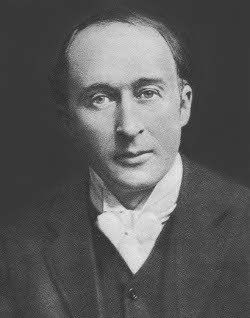I'm counting the days until the Wexford Opera Festival. Ten at present. Very pleased to be going back this year to an event of which I've loved every minute the times before that I have been there, and this year they're doing Delius's Koanga, a blink-and-you-missed-it rarity (it was done once at Sadler's Wells in 2007 and I blinked and missed it - or may have been away in Bosnia at the time - a pity one can't be in several places all at once). Posted below is a short piece I wrote for yesterday's Independent about why it's so special.
First, here's Sir Malcolm Sargent, with an introduction to 'La Calinda' that isn't terribly accurate about its setting. The opera is set in Louisiana. It was Delius himself who was on an orange plantation in Florida...of which more in a mo.
Delius’s Koanga is the opera I have waited
all my life to see. Stagings are so rare that if you blink, you miss it. Yet
the work contains one of the composer’s best-loved pieces, ‘La Calinda’, with its
irresistible oboe solo that seems all mingled smiles and tears; my husband and
I both love it so much that we walked out to it after our wedding ceremony. Now,
at last, Koanga is being presented complete at the Wexford Festival, Ireland – the
best friend anywhere of deserving, under-performed operas.
 |
| Delius, 1907 |
Unfortunately it is rare for a good reason:
its distinctly tricky story, based partly on the novel The Gradissimes by
George Washington Cable. Koanga is an African king and Voodoo priest who has
been brought to Louisiana as a slave. He loves Palmyra, the mulatto daughter of
a slave girl and a white plantation owner, and agrees to convert to
Christianity to marry her. But the overseer wants Palmyra for himself;
everything goes horribly wrong and the tale concludes in tragedy.
Just imagine the problems such a scenario
presents for a creative team in 2015. Its director, Michael Gieleta, whose staging
of Maria by Roman Statkowski took Wexford by storm in 2011, nevertheless points
out that the issues Koanga raises are absolutely current: religion, sexual
abuse, power and of course race.
Blacking up is not an option. “The
characters are defined not by their skin colour, but by their body language and
by their relationships,” Gieleta says. “This is about captors and captives.”
Koanga and Palmyra are played by two exciting young singers, the American
baritone Norman Garrett and the South African soprano Nozuko Teto; and Gieleta’s
preparations for the production included holding dance workshops in South
Africa.
Back in 1895, Koanga might have seemed an
unlikely topic for a British composer – but Delius had his own reasons for
choosing a tragic love story set amid the toxic race relations of the Deep
South. Born to a German immigrant family in Bradford, he moved to Florida in
1884, aged 22, to run an orange plantation. Here he fell in love with an
African-American girl, whose family would previously have been slaves – and she
bore his child. Later he returned to the US to look for her and their son. They
had vanished. She may have gone into hiding for fear he would take the boy away.
This startling episode was confirmed by
Eric Fenby, Delius’s amanuensis, in a recorded phone conversation with the
violinist Tasmin Little, who researched the topic in 1997. Fenby was well aware,
too, of how close Koanga was to its composer’s heart. “Usually, once a work was
written, Delius's interest in it would wane,” he wrote. “For Koanga,
however, he showed concern as though it held some secret bond that bound him to
his youth in Florida. It was the one work he deplored in old age he was never
likely to hear again...”
Clearly Fenby regarded Koanga as the work that was inspired by
Delius’s lost love and the child he never knew. Its conductor at Wexford,
Stephen Barlow, confirms the special nature of the work: “The libretto may be a
bit clunky,” he says, “but some of the music has the great, sensual sweep of
Delius at his finest.”
And if ‘La Calinda’ feels like smiles
through tears, perhaps that was with good reason all along.


